The Tempi train crash sent shockwaves through Greece, leaving the nation deeply shaken. TRAUMA, an audio documentary produced by iMEdD, features interviews with survivors and relatives of victims who were affected by seven significant disasters and accidents spanning from 1999 to the present. These testimonies consistently highlight a common theme: a widespread lack of trust in the government and a prevailing sense of impunity. This recurring pattern could be interpreted as Freud’s concept of the “repetition compulsion”, wherein society finds itself compelled to repeat certain behaviours and experiences.
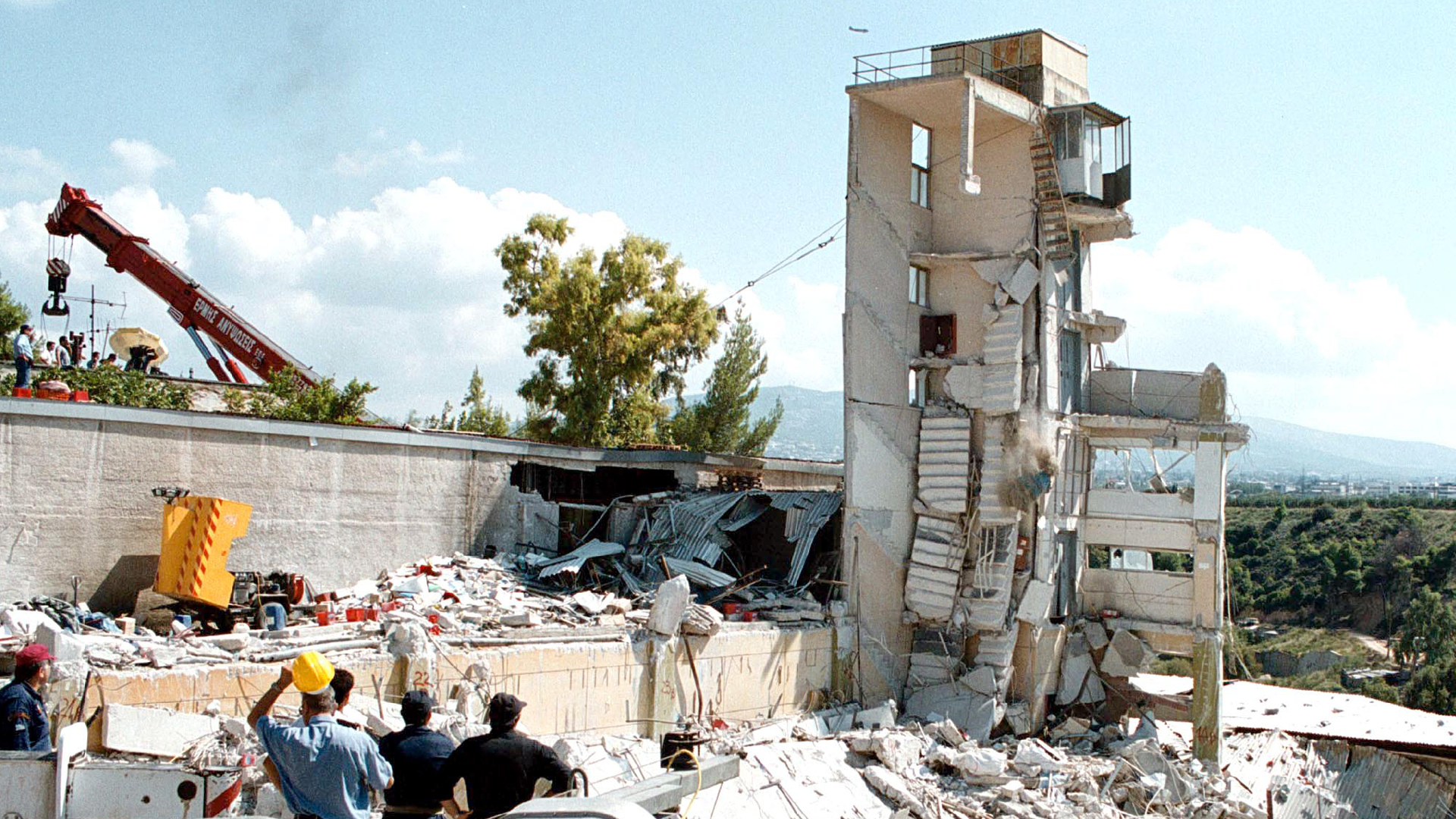 ΑΝΑ-MPA/ V. Vardoulakis
ΑΝΑ-MPA/ V. Vardoulakis
At four minutes to 3 p.m. on September 7, 1999, a 5.9 Richter earthquake struck Athens, centred around Mount Parnitha, Athens. Despite lasting just 15 seconds, the earthquake proved fatal due to its shallow depth. A total of 143 people lost their lives, and hundreds were injured. The impact was extensive: 110 buildings collapsed, rendering 5200 unfit for habitation, leaving thousands homeless. The majority of the fatalities, amounting to 39, occurred at the Rikomex factory in Menidi. The engineers and architects involved in constructing the building were either convicted of misdemeanors or acquitted. After years of legal battles, the families of the Rikomex victims finally received compensation. The court judgments highlighted that, alongside construction errors, the factory’s collapse was attributed to unauthorised extensions. Surprisingly, officials from the former East Attica Prefecture had not identified any issues during previous inspections of the same factory.
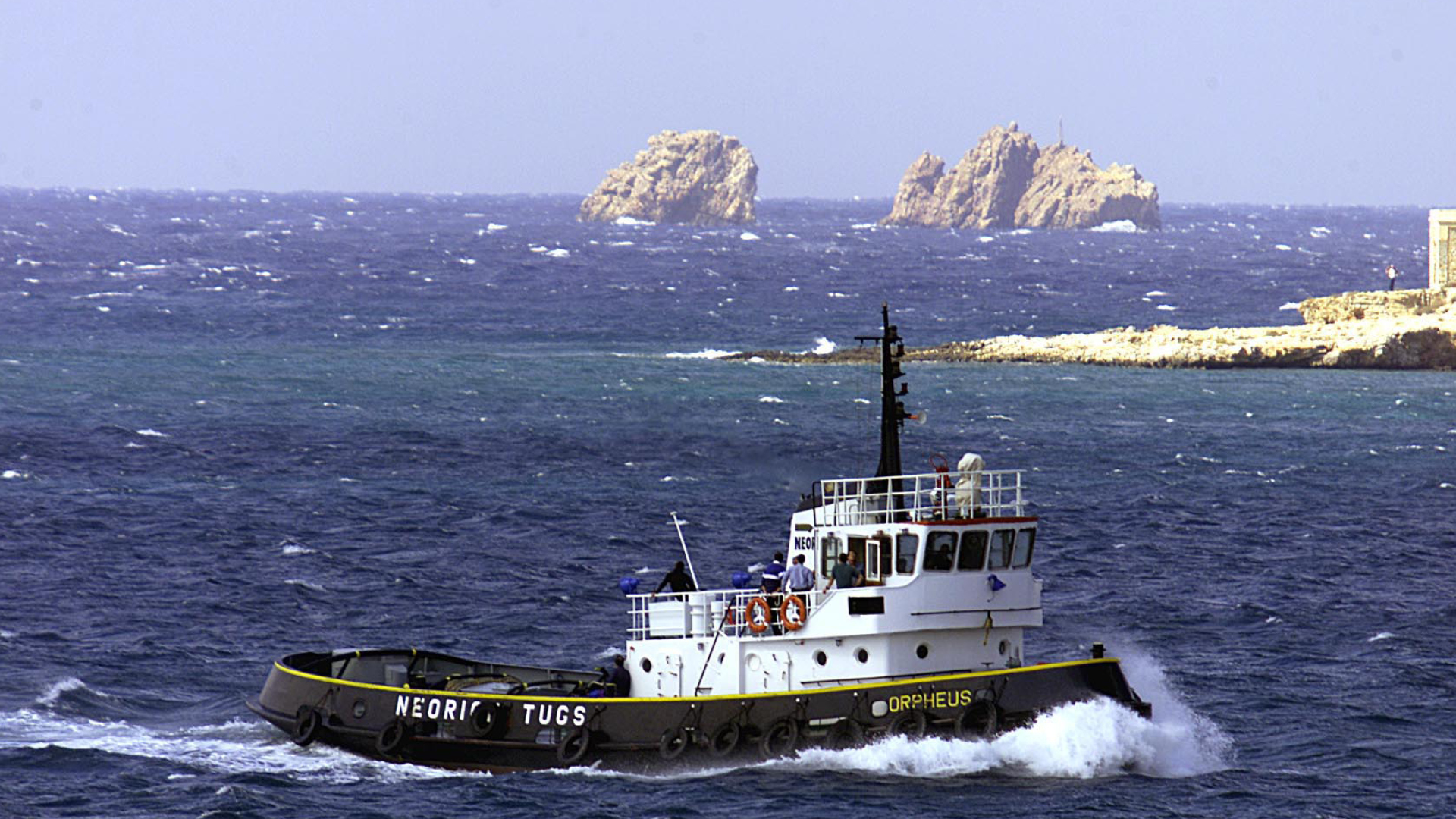 ΑΝΑ-MPA/ V. Vardoulakis
ΑΝΑ-MPA/ V. Vardoulakis
On the evening of September 26, 2000, around 10:12 p.m., the passenger ship “Express Samina” ran aground on the Portes Islets rocks near Paros. Approximately 45 minutes later, it sank, claiming the lives of 81 individuals. The forensic report revealed that the watertight compartment doors, which are the metal safety doors separating different sections of the ship, had been left open. This resulted in a complete blackout, with the emergency generators failing to function. Unfortunately, due to the ensuing confusion and panic, the lifeboats were not utilised. It was later reported by the seafarers’ union that the “Express Samina” was operating with a temporary safety certificate. In the initial trial, five crew members were found guilty for their involvement in the ship’s sinking. Both the captain and the lieutenant were sentenced to prison. However, in the subsequent Court of Appeal, the sentences of the latter two were reduced, leading to their release from prison. Additionally, two executives from the shipowning company received redeemable sentences as a result of their roles in the incident. Tragically, two months after the shipwreck, Pantelis Spinias, the CEO of Minoan Flying Dolphins (the company affiliated with the ship), took his own life.
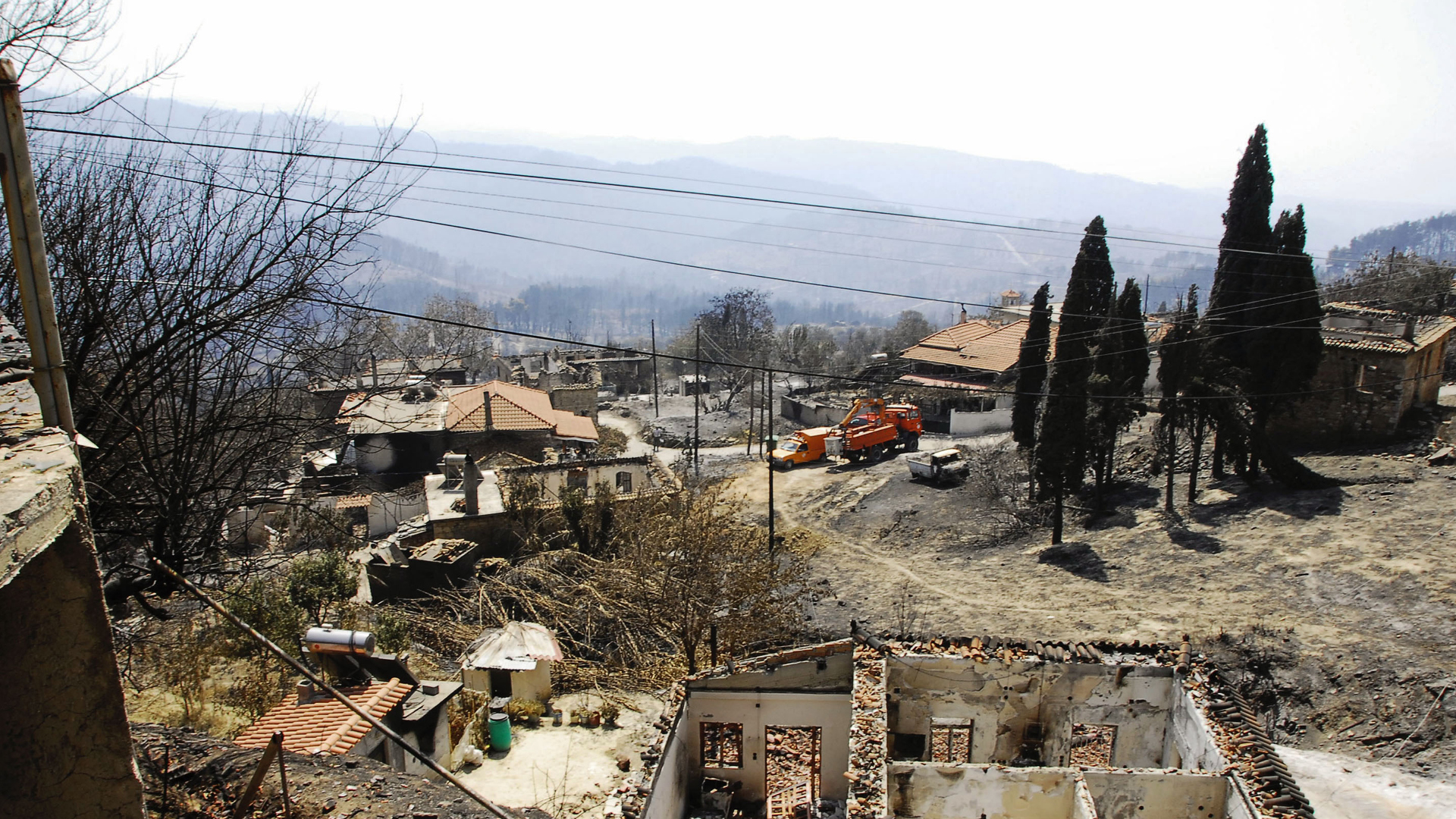 ΑΝΑ-MPA/ V. Koutroumanos
ΑΝΑ-MPA/ V. Koutroumanos
On August 24, 2007, a devastating fire broke out in the prefecture of Ilia, claiming the lives of 36 individuals. Among them, 26 people were tragically trapped on the Zacharo-Artemida provincial road. The fire originated in the kitchen of an elderly woman’s house in the settlement of Paleochori. The court determined that the then prefect of Ilia had failed to ensure the effective functioning of the Civil Defence mechanism, while the then mayor of Zacharo had neglected to convene the local coordinating body, despite the high risk of fire on that particular day. Both individuals received redeemable sentences as a result. Additionally, a fire warden and the woman whose house the fire started from were found guilty. It was revealed that the forests and the rural and country road network in Ilia had not been cleared since 1980. The fire ravaged hundreds of homes and thousands of acres of forest and crops were also lost in the blaze.
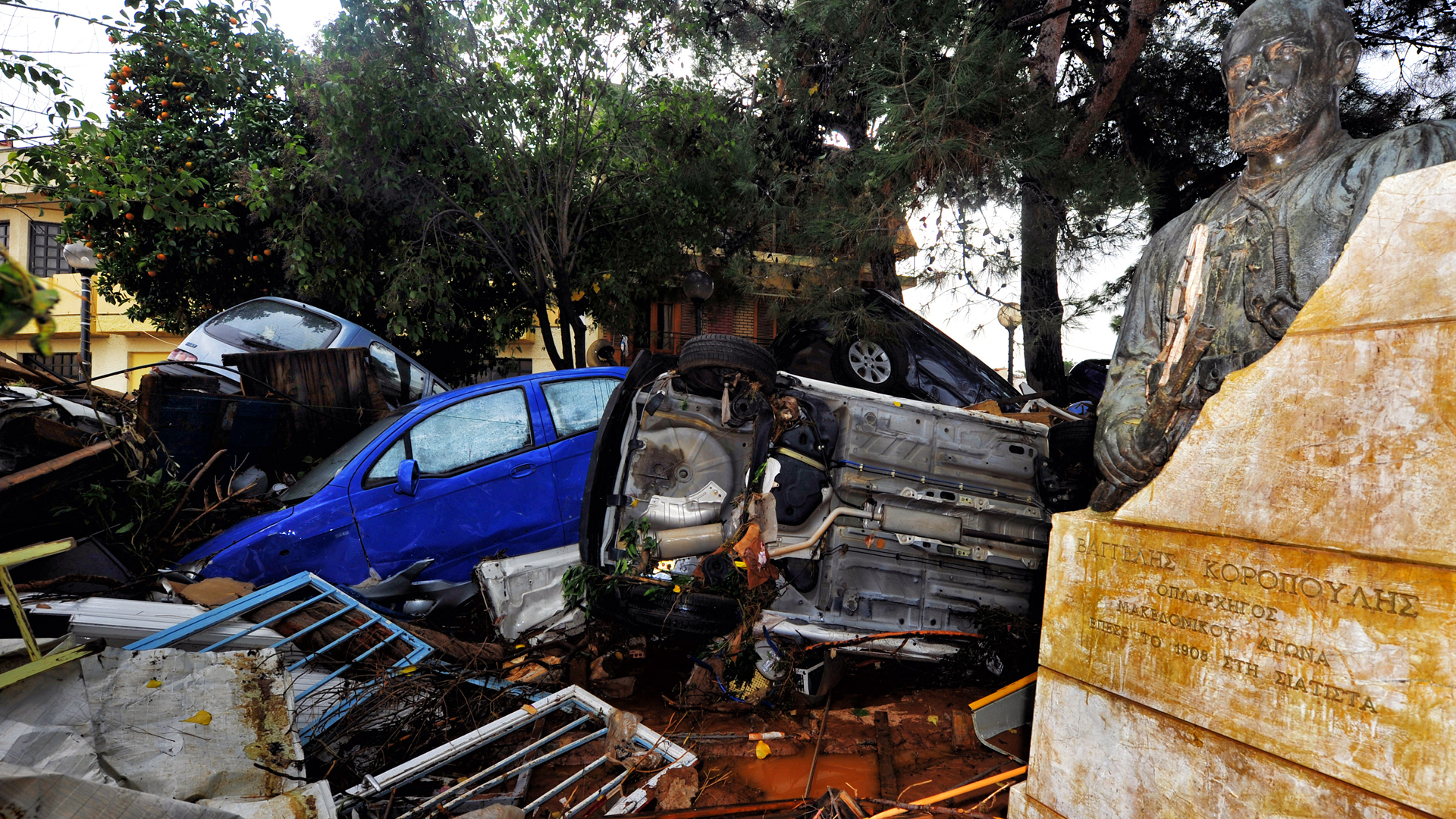 ΑΝΑ-MPA/ V. Psomas
ΑΝΑ-MPA/ V. Psomas
The flooding that occurred in Mandra, Athens in November 2017 resulted in the tragic loss of 24 lives. The impact was extensive, with numerous buildings and vehicles suffering significant damage. In the initial trial, which took place five years later, eight out of the 21 defendants, including two former regional vice-governors, the then mayor of Mandra, and employees from various departments including the Forestry Department, Urban Planning Department, and stream policing service (the agency responsible for the monitoring and management of watercourses), were found guilty of misdemeanors. The convicted individuals received sentences of more than six years, some of which were redeemable or suspended. The court acknowledged the heavy rainfall that took place on the day of the tragedy, but it also emphasised the absence of flood protection measures in West Attica, as well as the obstruction of streams and watercourses and the extent of unauthorised construction. In response to these findings, the relatives of the victims in Mandra pursued compensation through the administrative courts, holding the Region, Civil Protection, and Police responsible for their losses.
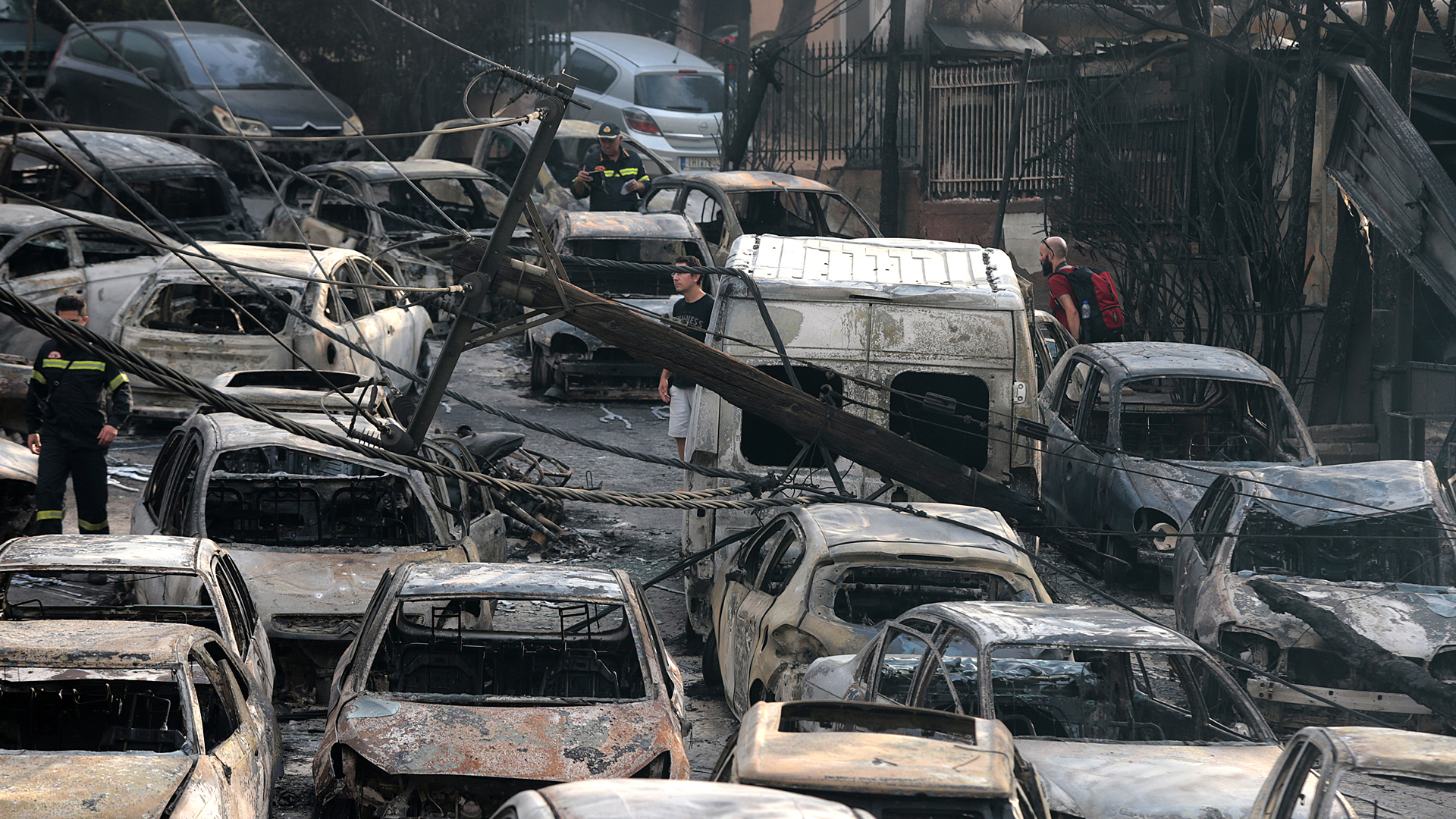 ΑΝΑ-MPA/ P. Saitas
ΑΝΑ-MPA/ P. Saitas
The fire, which tragically resulted in the loss of 104 lives, ignited at 4:41 p.m. on the afternoon of July 23, 2018. It originated from an open plot of land in the Daou Penteli area in Athens, where a resident was burning weeds. Despite the expected presence of firefighting vehicles on standby nearby, they were unavailable as they were attending to the Kinetta fire. Furthermore, air assets were either grounded due to damage or unable to operate at sea due to strong winds. The combination of adverse weather conditions and the terrain of the area contributed to the rapid spread of the fire. By 6:12 p.m., the fire had crossed Marathonos Avenue and reached Mati. Shockingly, no evacuation order was issued for the settlement. As a result, people sought refuge in the sea, while cars became stranded due to police redirecting traffic on the coastal road. Subsequent conversations between the fire brigade and other members of the administration revealed a breakdown in coordination and response. The trial for the Mati tragedy is currently ongoing. Despite the investigating judge’s request to elevate the charges, the 21 defendants are currently being tried for misdemeanors.
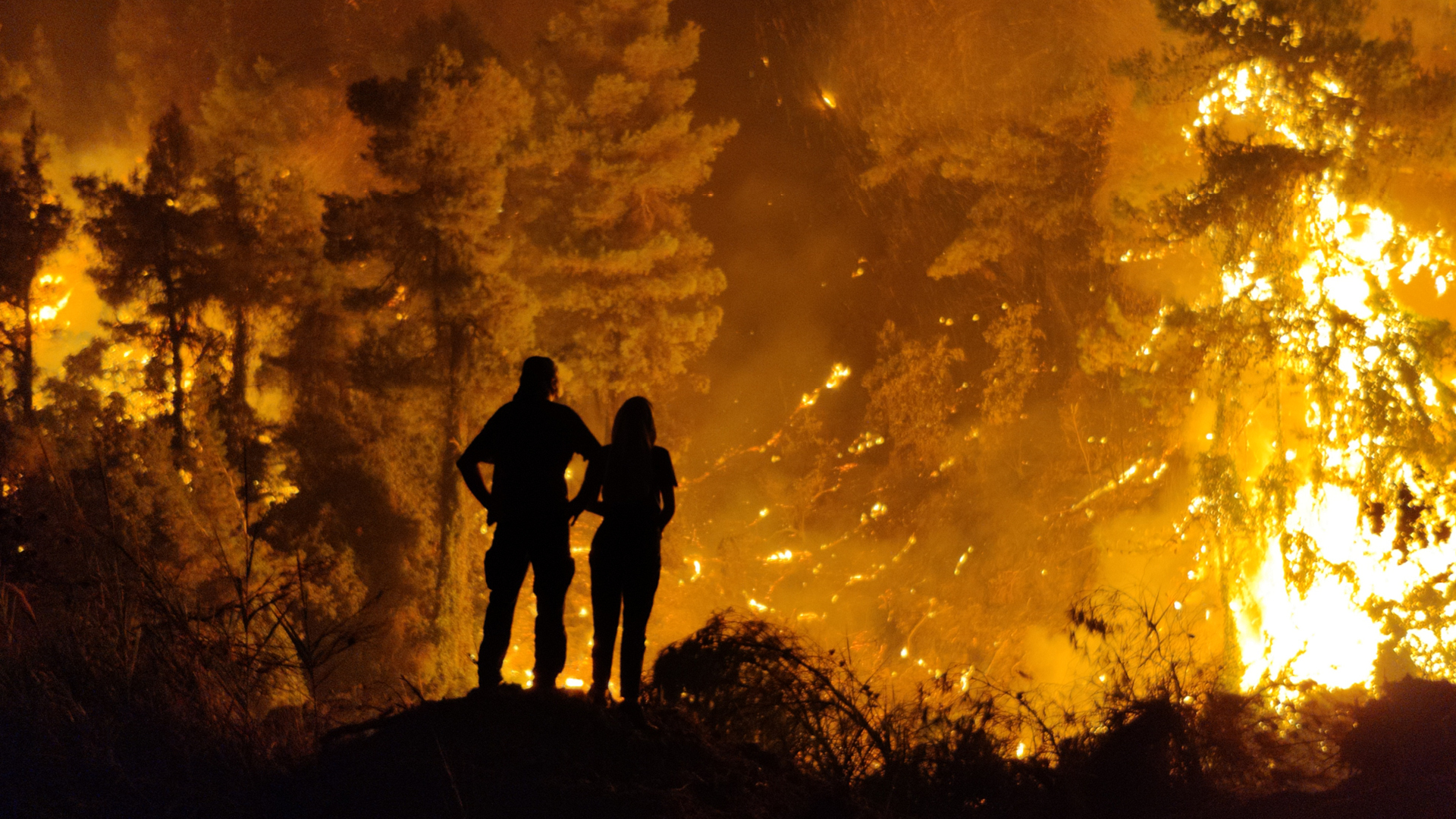 ΑΝΑ-MPA/ Sp. Kouros
ΑΝΑ-MPA/ Sp. Kouros
The fire raged uncontrollably for eight days, finally subsiding only when it reached the sea, scorching the entirety of northern Euboea from the Gulf of Euboea to the Aegean Sea. Over 120 000 acres of forests and crops were consumed by the flames. Many individuals who relied on the forest for their livelihood, such as loggers, resin growers, and beekeepers, were forced to either relocate or change professions. In the initial 24-hour period, no aerial resources were available as they were engaged in battling the major fire in Varibobi. Although numerous villages were evacuated, the evacuation and suppression efforts lacked proper coordination. The authorities attributed the fire to arson, though no concrete evidence of an organised plan has been presented thus far. Climate change has also been cited as a contributing factor. While the government pledged a comprehensive plan for the reconstruction of northern Euboea, little progress has been made in providing support to the fire victims and restoring essential infrastructure.
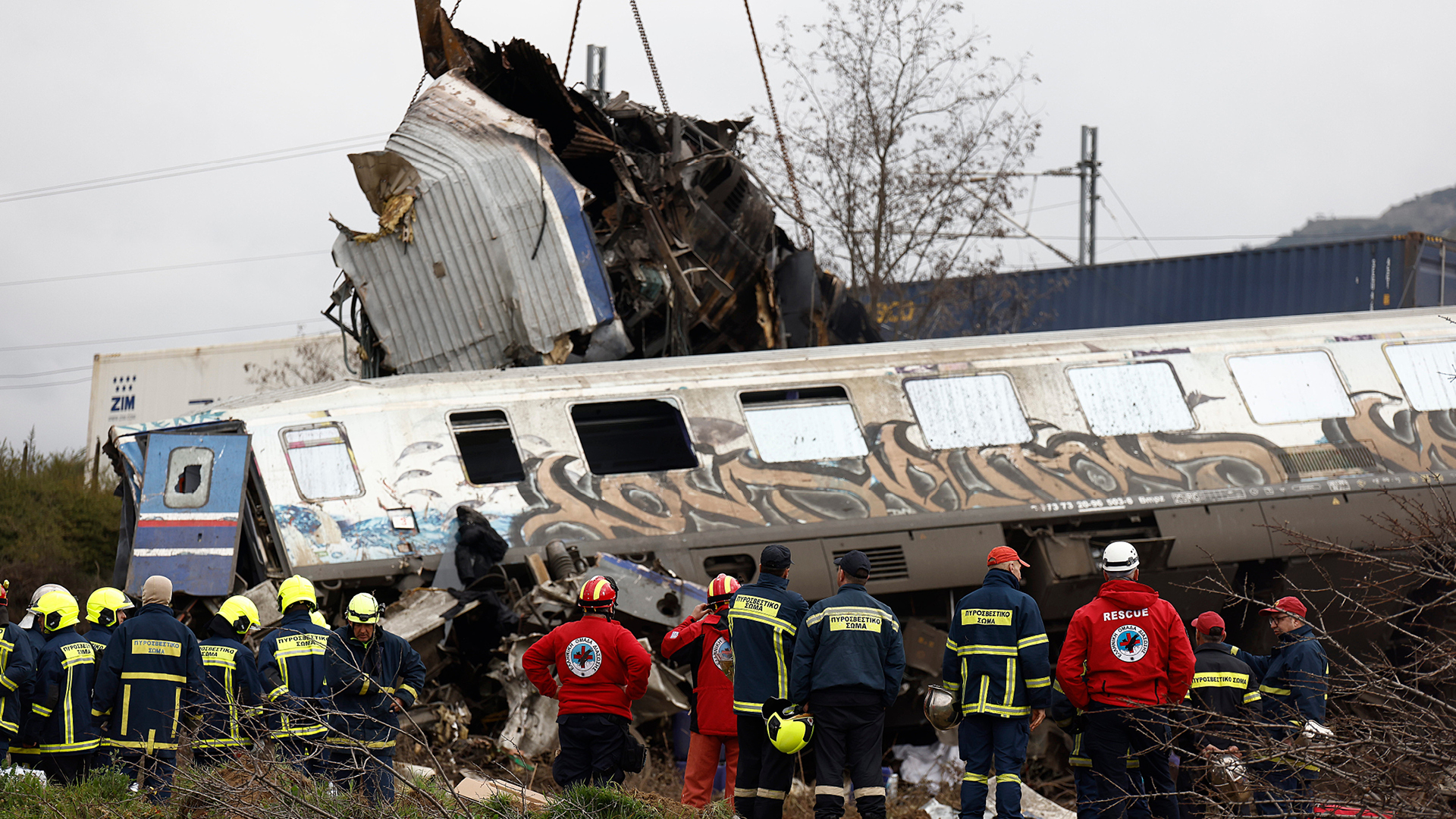 ΑΝΑ-MPA/ Ach. Chiras
ΑΝΑ-MPA/ Ach. Chiras
At 11:20 p.m. on the night of February 28, a collision occurred between two trains in the town of Evangelismos near Tempi. The Intercity 62 passenger train and a freight train had been travelling in opposite directions on the same track for an hour without being detected. Tragically, 57 individuals lost their lives, with the majority being young people and students travelling from Athens to Thessaloniki. The responsibility for the incident was attributed to the stationmaster of Larissa, who was arrested and placed in custody. Following the tragedy, Kostas Karamanlis, the Minister of Infrastructure and Transport, resigned from his position. It was later revealed that the train’s automatic control and safety system, which could have prevented human error, was not functioning. The project contracts had remained unfulfilled for nearly ten years. “Trains in Greece are operated manually,” explained railway workers. In addition to the Larissa stationmaster, five other OSE (Hellenic Railways Organisation) workers and executives are currently facing prosecution for their involvement in the Tempi accident. The investigation has been assigned to a special examining magistrate.
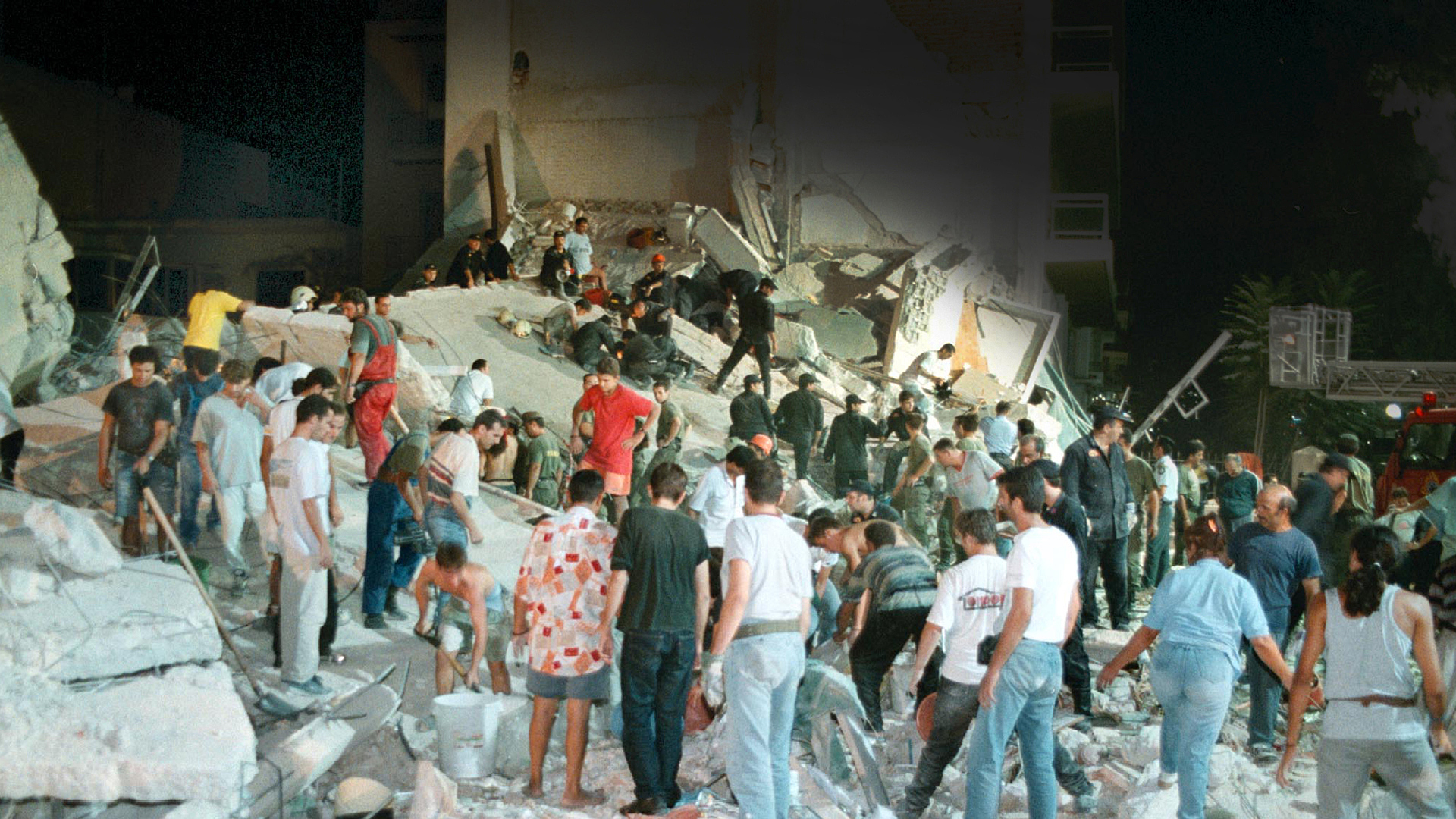 ΑΝΑ-MPA/ P. Giannakouris
ΑΝΑ-MPA/ P. Giannakouris
Bitterness. Because you lose your loved ones. Your life is never the same again, no matter how much you wish it to be. You try to move on, you go back to work, but the pain returns and haunts you.
Yannis Papadopoulos, who lost his brother in the 1999 Parnitha earthquake.
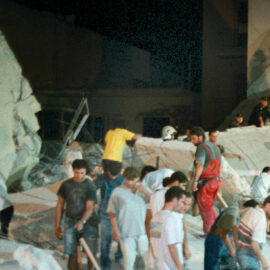
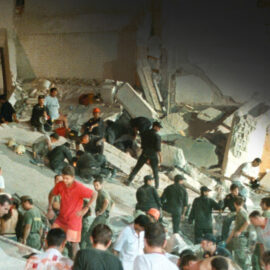
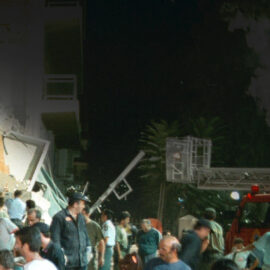
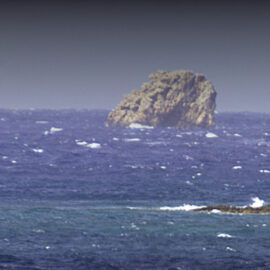
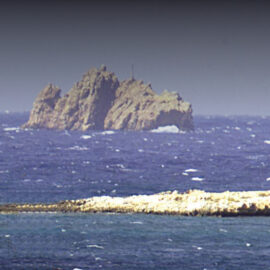
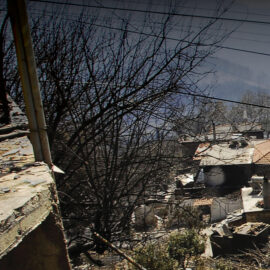
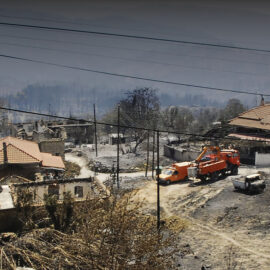
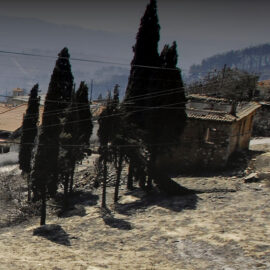
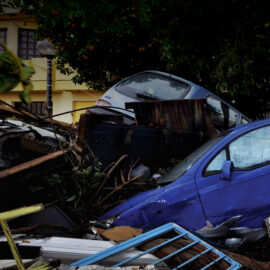
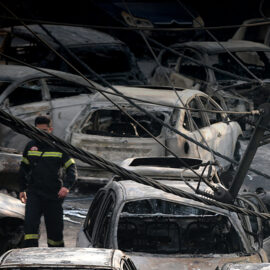
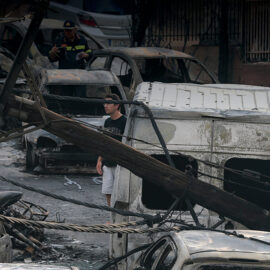
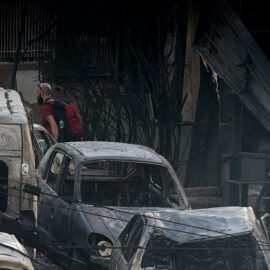

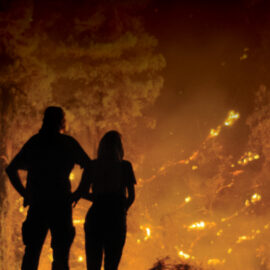

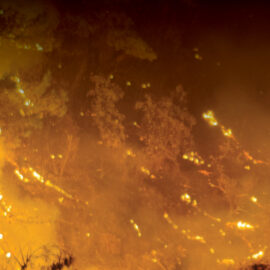
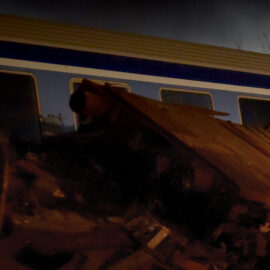
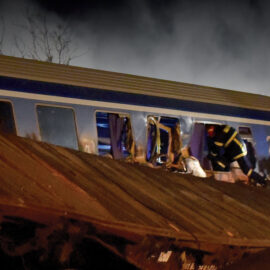
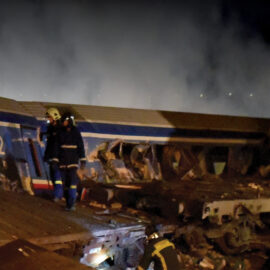

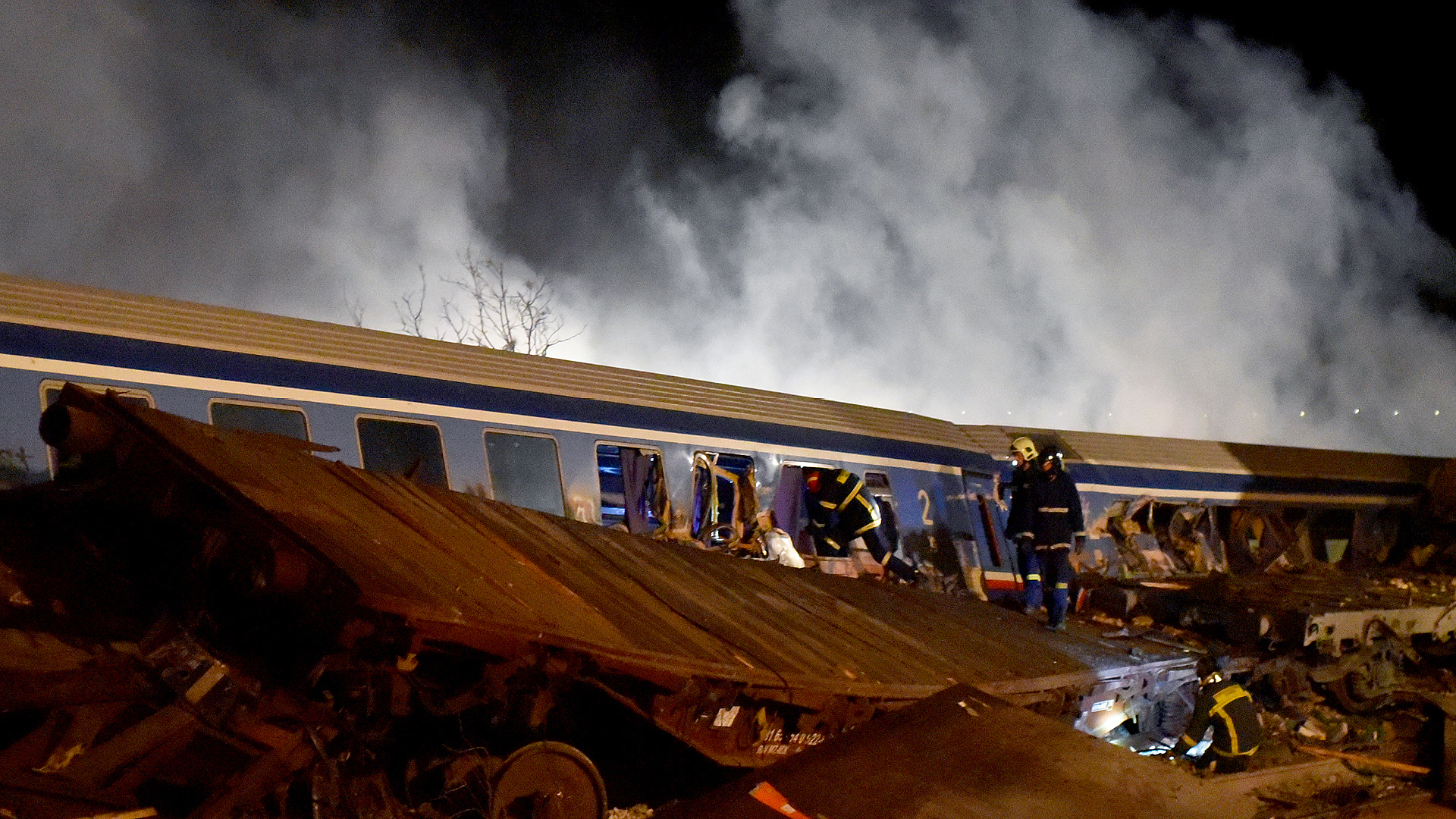 ΑΝΑ-MPA/ Ap. Ntomalis
ΑΝΑ-MPA/ Ap. Ntomalis
We started to believe that we were entering a phase of normalcy. But then an event like the Tempi train crash occurs and shatters that illusion with a loud bang. Each one of us, individually and collectively, is now grappling with a sense of distrust. It's what we refer to as the fundamental social contract of trust between the government and its citizens.
Stelios Stylianidis, Professor of Social Psychiatry

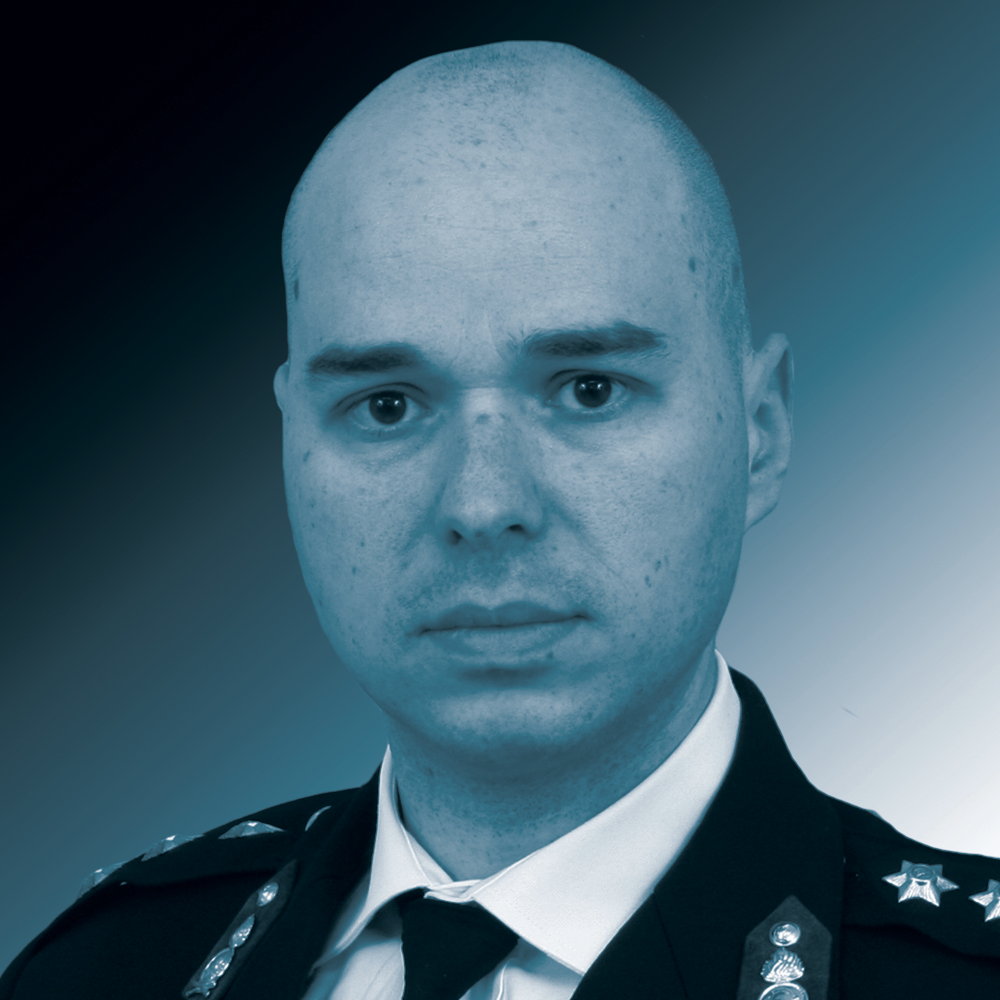

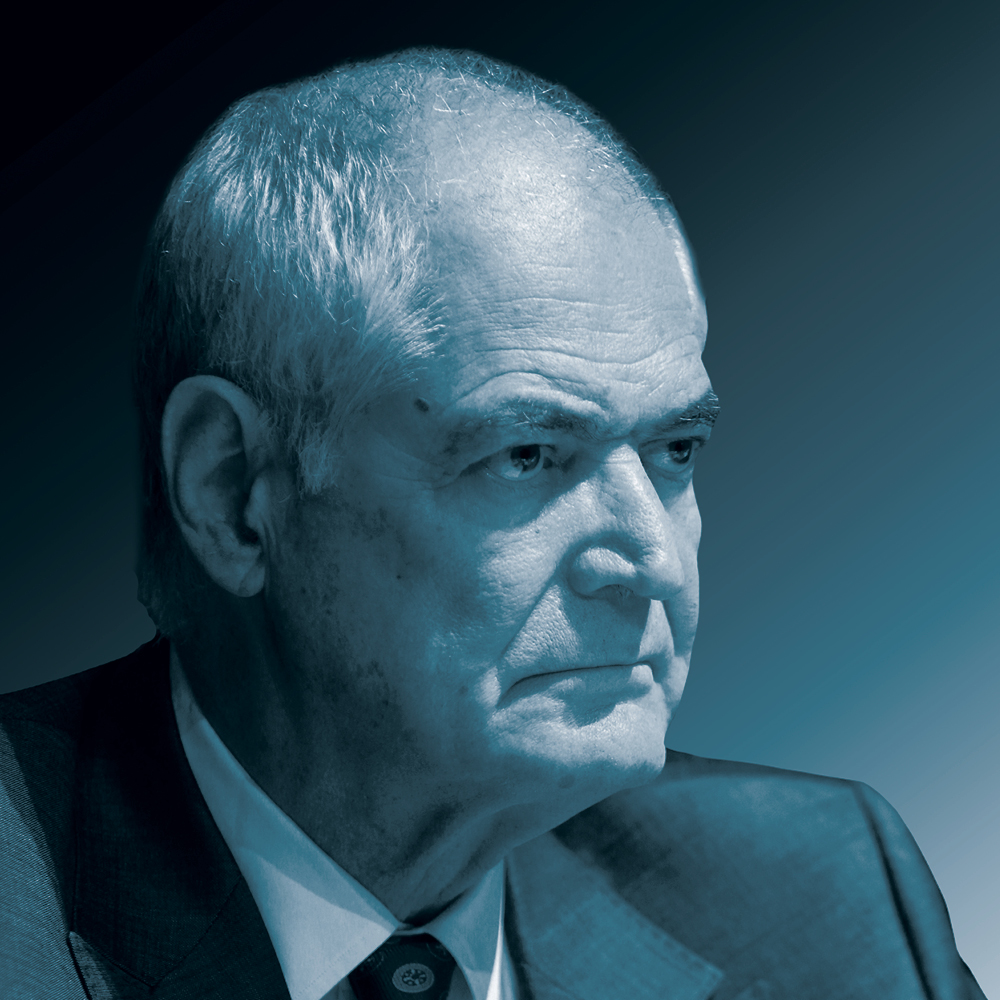

The project team
Investigation – Audio Documentary: Kostas Koukoumakas, Nikolas Aronis, Phoebe Fronista, Katerina Voutsina, George Schinas
Script – Narration: Kostas Koukoumakas
Sound Mixing – Sound Design: Aris Athanasopoulos
iMEdD Podcasts Project Manager: Panagiotis Menegos
Best Practices Guide: Katerina Voutsina, Athina Thanasi, Stefaniya Ibrishimova, Panagiotis Menegos, Anastasia Moumtzaki, Giolanta Ntamadaki, Celia Tsigka
Text Editing: Kelly Kiki
Translation: Anatoli Stavroulopoulou
Art Direction: Evgenios Kalofolias


